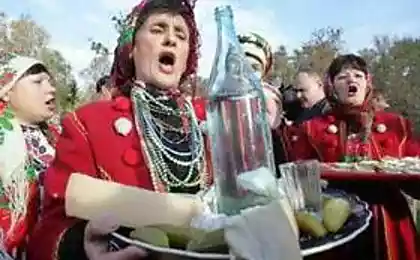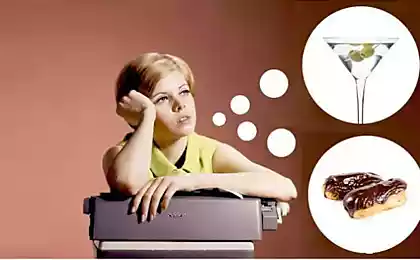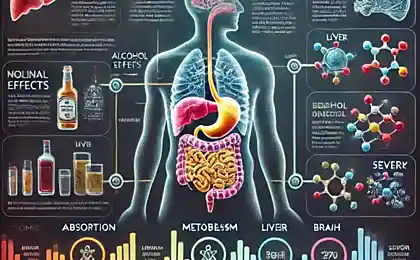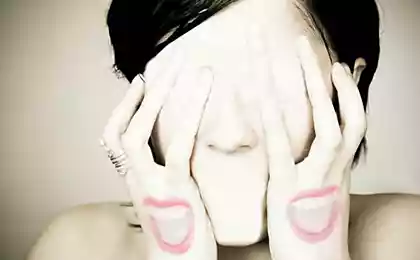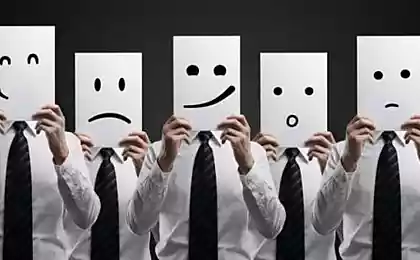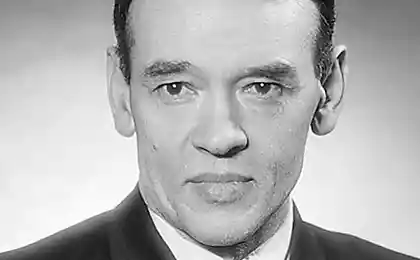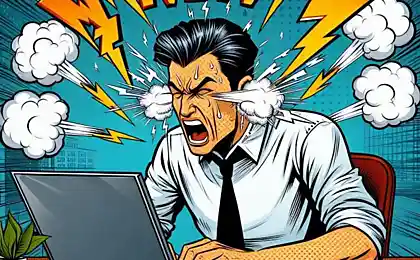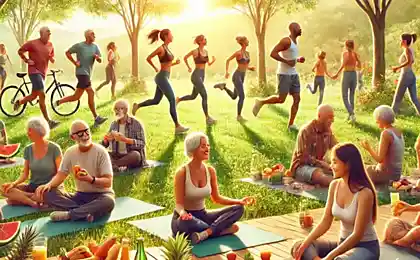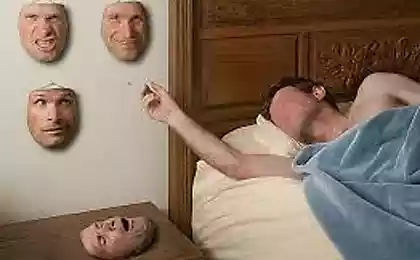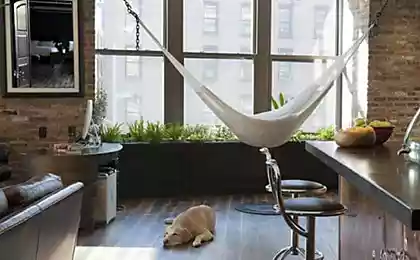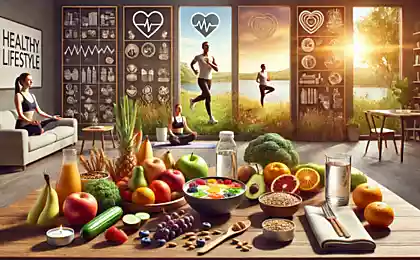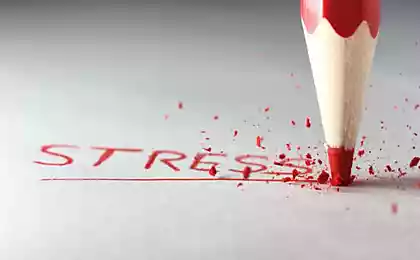177
How to relax and distract from problems without alcohol
“Drinking is a form of suicide that allows you to come alive the next day, although not without consequences.”

Why we turn to alcohol and how it is dangerous
The modern rhythm of life is full of stress, tension and continuous challenges. It is not surprising that many people turn to alcohol in their attempts to “disconnect” from problems. This ancient way to temporarily reduce anxiety has a serious biochemical background - ethanol activates the production of dopamine and temporarily reduces the activity of the prefrontal cortex of the brain responsible for analysis and critical thinking.
According to the World Health Organization, more than 3 million deaths are linked to alcohol use each year. In addition to the obvious harm to the liver, cardiovascular system and brain, regular drinking can lead to psychological dependence and inability to cope with stress without the help of alcohol.
The paradox of alcohol is that by offering temporary relief, it creates long-term problems: sleep disturbances, increased anxiety, cognitive decline and, most importantly, undermines the natural mechanisms of self-regulation of the psyche. Instead of solving problems, we only postpone them, aggravating our condition at the biochemical level.
A Scientific View of Relaxation: How Our Brains Work Under Stress
Before considering alternatives to alcohol, it’s important to understand what happens to our bodies when we’re under stress. When faced with a threat or problem, the hypothalamic-pituitary-adrenal axis is activated: adrenaline, cortisol, heartbeat increases, muscles tense. This fight-or-flight response was evolutionarily necessary, but in today’s chronic stress environment, it is becoming devastating.
Effective relaxation techniques work directly with the parasympathetic nervous system - the "brake" of the body, triggering the processes of recovery, digestion and rest. Activation of parasympathetics reduces heart rate, blood pressure, promotes the production of endorphins and serotonin - hormones of happiness and satisfaction.

Ten effective ways to relax without alcohol
It is important to understand that there are no universal solutions. Effective relaxation techniques should be selected individually and practiced regularly. These skills are like muscles – the more you train them, the stronger they become.
1. Mindful Meditation and Breathing Practices
Mindfulness meditation is a scientifically proven method of reducing stress. Even a 10-minute daily practice of mindful breathing can significantly reduce cortisol levels in the blood. Studies show that regular meditation contributes to an increase in gray matter volume in areas of the brain responsible for self-regulation and emotional control.
The simplest technique is breathing "4-7-8": inhale for 4 counts, delay for 7, exhale for 8. Ten such cycles can significantly reduce physical manifestations of anxiety by activating the parasympathetic nervous system.
2. Physical activity: from yoga to intense training
Exercise is a powerful antidepressant. With active load, endorphins, endocannabinoids and anandamide are produced - neurotransmitters that cause a natural sense of euphoria, known as the "runner effect." In addition, regular exercise promotes neurogenesis – the formation of new neurons in the hippocampus, which improves cognitive function and emotional stability.
Yoga is particularly effective for stress relief through a combination of physical postures (asanas), breath control (pranayama), and meditation practices. Studies show that even one 90-minute yoga session reduces levels of GABA, a neurotransmitter that blocks alarms in the brain.
3. Immersion in nature: forest baths
The Japanese practice of shinrin-yoku (forest baths) scientifically confirmed what our ancestors intuitively knew: staying in the forest has a powerful therapeutic effect. Phytoncides, volatile compounds released by trees, strengthen the immune system, and green and natural sounds reduce blood pressure and cortisol levels.
4. Creative expression
Art is a powerful tool of psychological self-regulation. Drawing, music, dancing, or writing can redirect the energy of anxiety into creativity. Art therapy works effectively by activating areas of the brain associated with pleasure and reward, helping to process emotions at a symbolic level.
5. Social connectivity
Quality communication with loved ones stimulates the production of oxytocin - the hormone of attachment and trust. Research suggests that maintaining social connections is a stronger predictor of longevity than quitting smoking or maintaining a normal weight.
Practical advice:
Create a “crisis list” – a list of 5-10 people you can call in a difficult time. The mere fact of having such social insurance reduces anxiety levels even if you don't use the list.
6. Thermal practices
Contrast showers, baths or saunas, cryotherapy – all these methods use temperature stress to train the nervous system. The alternation of heat and cold stimulates the production of norepinephrine and beta-endorphins, improves blood circulation and increases the overall stress resistance of the body.
7. Deep relaxation and autogenic training
Progressive muscular relaxation according to Jacobson, autogenic training, the Schultz method - these techniques are based on intentional tension and subsequent relaxation of various muscle groups. This practice helps to restore the broken connection between the body and consciousness, reduce physical stress and improve awareness of bodily sensations.
8. Proper nutrition and brain neurochemistry
What we eat directly affects our ability to cope with stress. Foods rich in tryptophan (a precursor to serotonin) – bananas, dairy, nuts – help improve mood. The antioxidants in bright vegetables and fruits protect the brain from oxidative stress, and the omega-3 fatty acids in fatty fish reduce inflammation associated with anxiety and depression.
9. Immersion in the Flow: Full Concentration
The flow state described by psychologist Mihai Csikszentmihalyi is a complete immersion in an activity in which a person loses a sense of time and self-awareness. This state is achieved by balancing the complexity of the task and the level of skill. Regular flow experiences are associated with increased levels of happiness and life satisfaction.

10. Spiritual Practices and the Search for Meaning
Regardless of religious beliefs, spiritual practices and thinking about the meaning of life contribute to psychological resilience. Studies show that people with developed spiritual lives cope better with life crises and recover faster from traumatic events.
Creating a personal relaxation system
The key to success is to create a customized system of healthy coping strategies that can be applied depending on the situation and the resources available.
Step-by-step plan for creating your own relaxation system:
- Stress audits Identify the main sources of stress in your life and the typical triggers.
- Monitoring reactions Pay attention to how your body and mind respond to stress (tension in certain muscles, changes in breathing).
- Experimentation Try various relaxation techniques and note their effectiveness in your case.
- Creation of a three-tiered system:
- “Emergency assistance” – quick techniques (breathing exercises, cold water on the wrists)
- “Daily Practices” – Regular activities to maintain balance
- Deep Recovery – Longer Practices for Deep Regeneration
- Integration into everyday life Incorporate selected practices into a regular daily routine.
It is important to understand that independent relaxation techniques are not always enough. If you experience severe symptoms of anxiety, depression or addiction, consult a specialist - a psychotherapist, psychiatrist or narcologist. Professional help is not a sign of weakness, but a manifestation of self-care.
Conclusion
Giving up alcohol as a means of relaxation is not a loss, but an acquisition. By developing healthy self-regulation skills, you not only avoid negative consequences, but also gain greater awareness, resilience to stress and a better quality of life. Alcohol masks problems, while healthy alternatives allow you to really solve them, enriching your life with new skills and experiences.
The ability to relax and recover naturally is a skill that can and should be developed. With each practice, you become stronger and your nervous system more resilient.
Glossary of terms
Coping strategies are a set of methods and actions that a person uses to cope with stress and difficult life situations.
Mindfulness is the practice of mindfulness aimed at being fully present in the present moment without judgment.
Shinrin-yoku is a Japanese practice of “forest baths”, which involves slow and conscious immersion in the forest environment for the purpose of healing.
The parasympathetic nervous system is a part of the autonomic nervous system responsible for the processes of rest, recovery and digestion.
Flow state is a psychological state of total immersion in an activity characterized by increased concentration and loss of sense of time.
Neurogenesis is the process of forming new neurons in the brain.
Autogenic training is a psychotherapeutic method of self-regulation based on self-suggestion.
Phytoncides are biologically active substances secreted by plants that have the ability to kill or suppress the growth and development of microorganisms.
